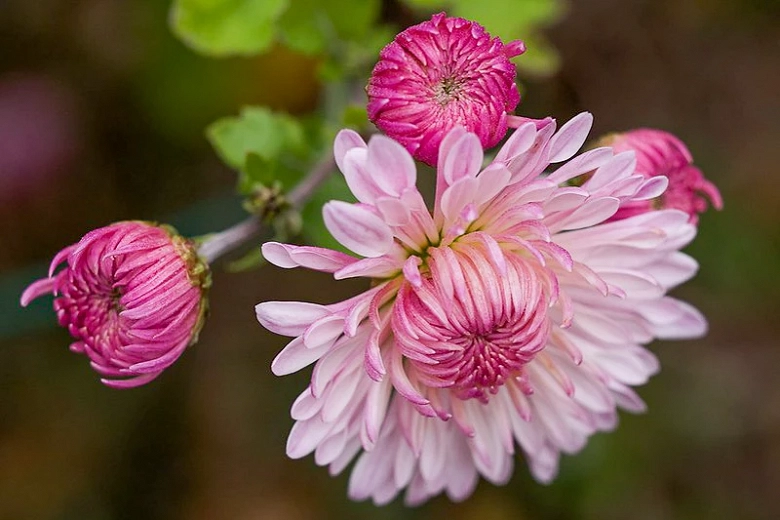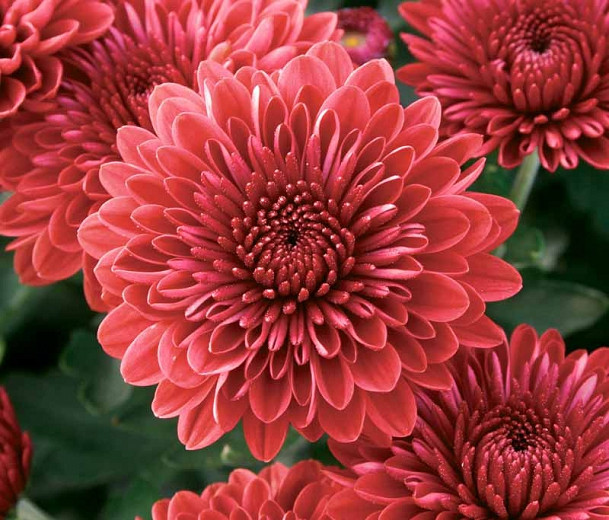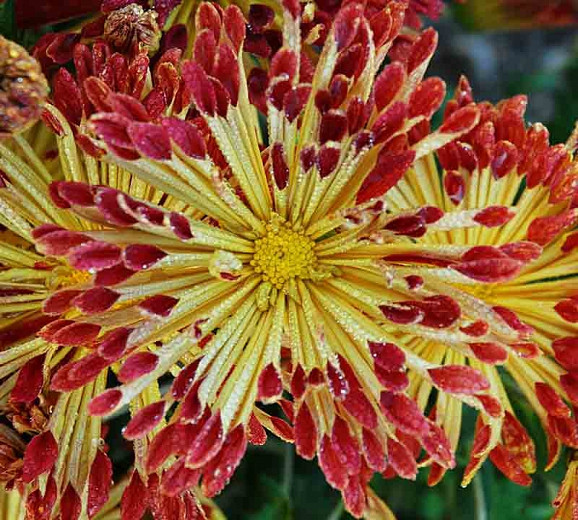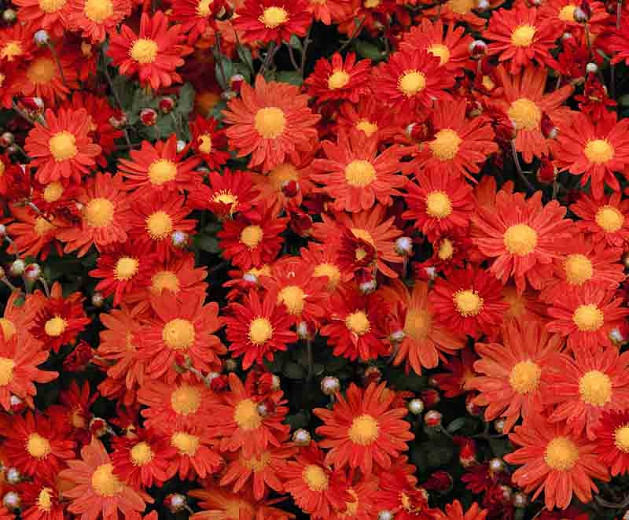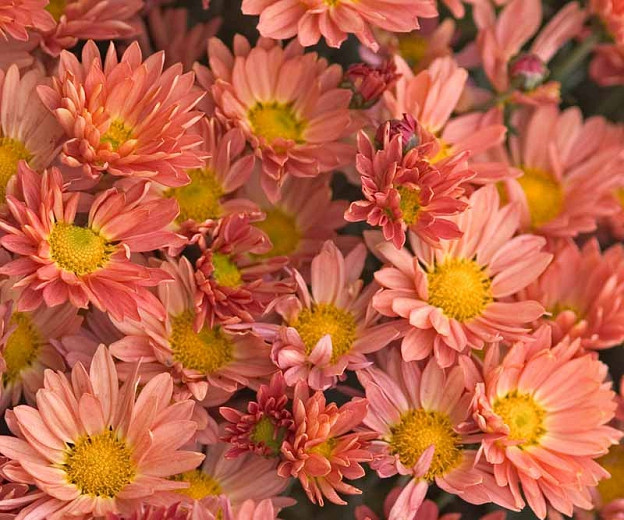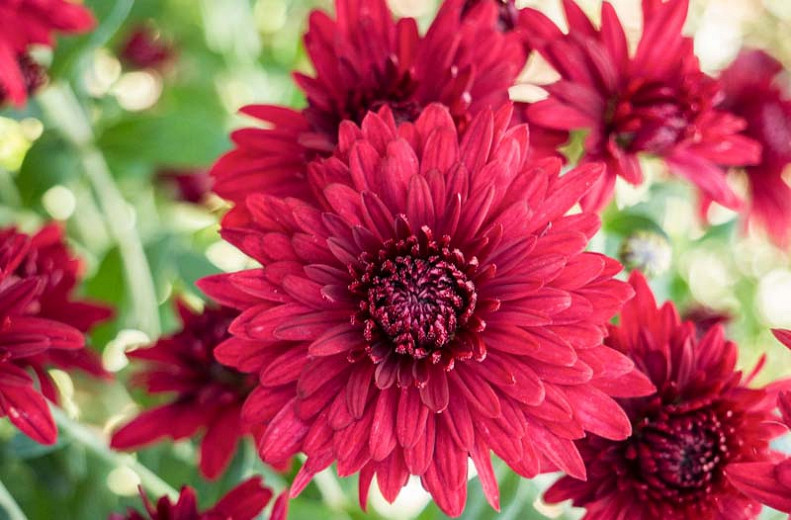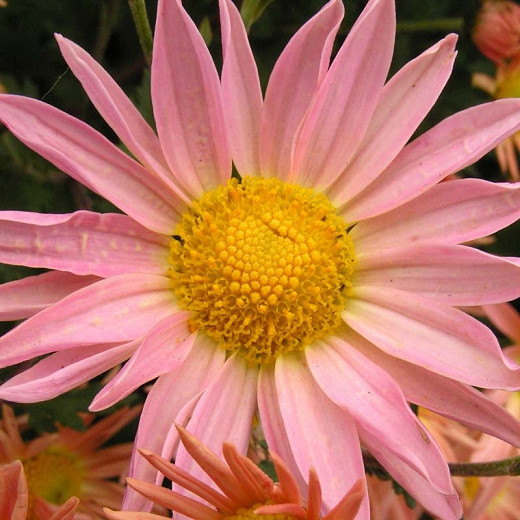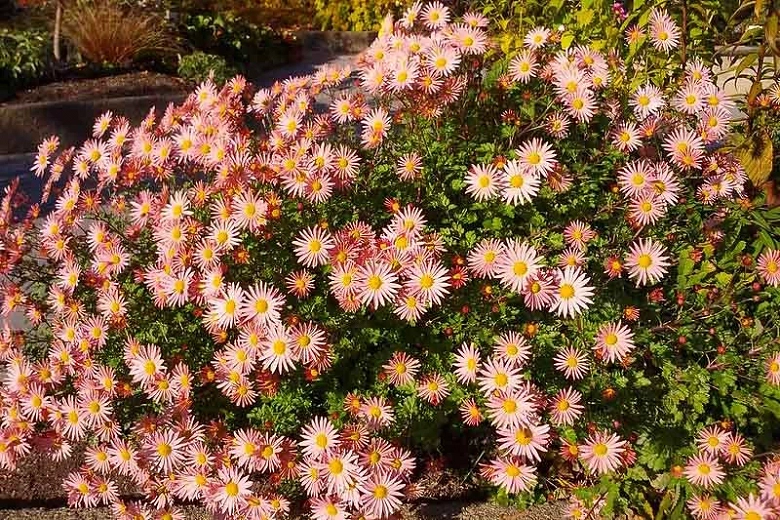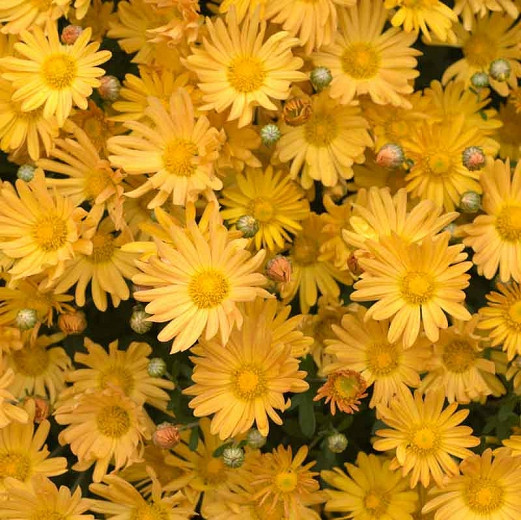Chrysanthemum Emperor of China
Noted for its ravishing blooms, Chrysanthemum ‘Emperor of China’ is a hardy garden mum boasting sprays of fully-double silvery-pink flowers with quilled petals. Dark mauve in the center, the blossoms feature purplish-pink undersides creating a bicolor effect.
Noted for its ravishing blooms, Chrysanthemum 'Emperor of China' is a hardy garden mum boasting sprays of fully-double silvery-pink flowers with quilled petals. Dark mauve in the center, the blossoms feature purplish-pink undersides creating a bicolor effect. Blooming in late summer and fall, they are borne atop upright stems clad with deeply divided, aromatic green leaves. The foliage turns mahogany-red shades as the weather gets cold. The flowers are long-lasting and great for cutting and bouquets. Will need good support and staking.
- Grows up to 24-36 in. tall (60-90 cm) and 30 in. wide (75 cm).
- Best flowering occurs in full sun in fertile, well-drained soils enriched with organic matter and general-purpose fertilizer. Water freely in dry weather. Plant in a sheltered location to protect your Chrysanthemum from strong winds.
- Once flowering is over in late autumn, cut the whole plant down to 8 in. (20 cm) tall.
- Pinch out the growing tip when the plants are 6-8 in. tall (15-20 cm) to encourage free-flowering, bushy plants.
- Propagate by basal softwood cuttings from overwintered plants in late winter or early spring. Cuttings should be rooted in a loamless compost the surface of which is covered with dry sand and kept at a temperature of 61°F (16°C). Place in a cold frame after first rooting and protect from frost. Harden off in mid-spring.
- Established clumps may be propagated by division in spring.
- Keep an eye out for aphids, caterpillars, leafhoppers, leafminers, plant bugs, and spider mites.
- Chrysanthemums can be affected by several diseases, including leaf spots powdery mildew, gray mold, or Chrysanthemum white rust. Provide good air circulation and avoid shady sites that cause moisture to remain on the leaves and provide a habitat for diseases.
- Toxic to dogs, toxic to cats, toxic to horses.
Requirements
| Hardiness | 4 – 9 |
|---|---|
| Heat Zones | 5 – 9 |
| Climate Zones | 2, 2A, 2B, 3, 3A, 3B, 4, 5, 6, 7, 8, 9, 10, 11, 12, 13, 14, 15, 16, 17, 18, 19, 20, 21, 22, 23, 24 |
| Plant Type | Perennials |
| Plant Family | Chrysanthemum |
| Exposure | Full Sun |
| Season of Interest | Summer (Late)Fall |
| Height | 2' – 3' (60cm – 90cm) |
| Spread | 2' – 3' (60cm – 90cm) |
| Spacing | 36″ (90cm) |
| Water Needs | Average |
| Maintenance | Average |
| Soil Type | Clay, Loam, Sand |
| Soil pH | Acid, Alkaline, Neutral |
| Soil Drainage | Moist but Well-Drained |
| Characteristics | Cut Flowers, Showy |
| Attracts | Butterflies |
| Garden Uses | Beds and Borders |
| Garden Styles | City and Courtyard, Informal and Cottage, Traditional Garden |
